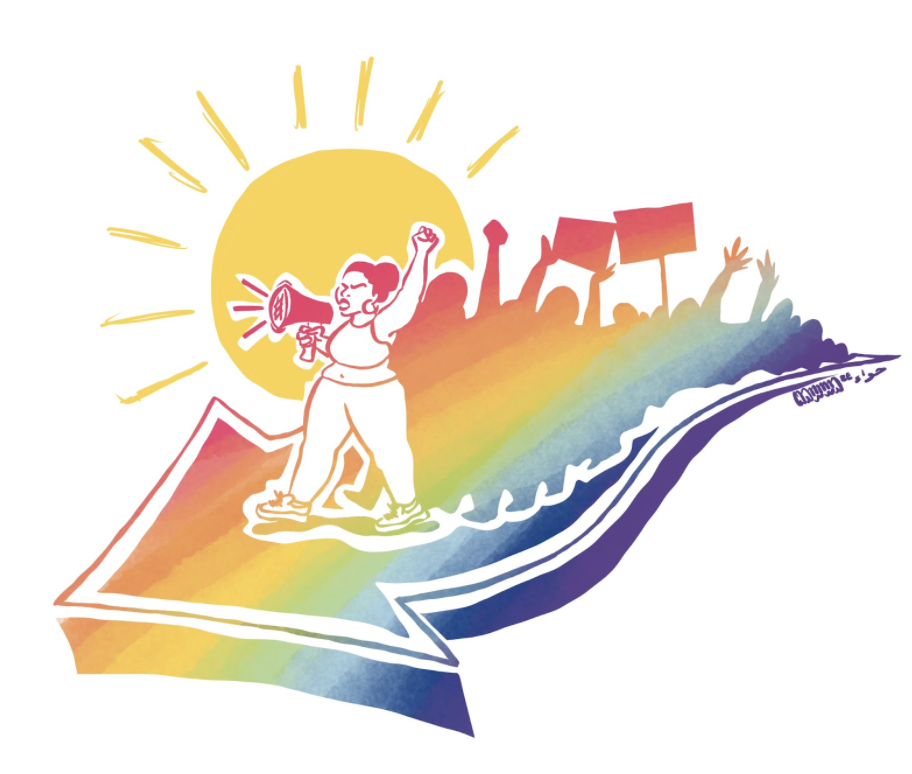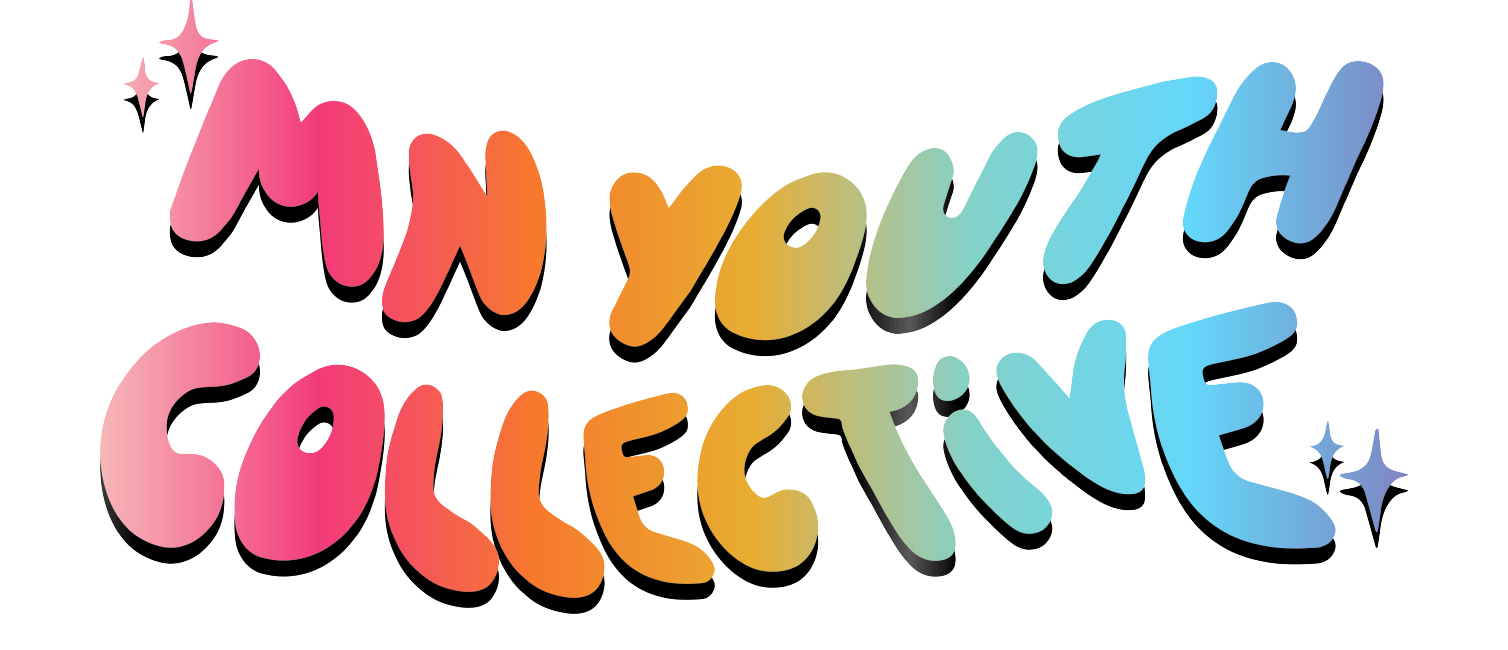Destiny applied for the very first cohort of MNYC’s fellowship program in 2019. “A lot of young organizers feel like traditional organizing can be transactional,” she says. “I’ve worked for campaigns and other nonprofits and they would just pull me out when it was convenient for them, when they needed a Black woman or a young person to speak or be out knocking on doors. When I applied for the fellowship at MNYC, I was excited because it was an organization made up of young people. I think it’s super important for the people leading policy change to be representative of the communities they’re advocating for.” Through participating in the fellowship, Destiny was able to find a community of peers that welcomed and motivated her. “I’m from New York City and I came to Minnesota for high school through a student exchange program,” Destiny recalls. “I was placed in a super white, rich school district and it was an isolating experience. In the fellowship, I made some really good friends and I was like, ‘okay, Minneapolis actually feels like home.’ I met people that looked like me who had similar experiences to me and different experiences as well.”

Destiny believes that the most useful thing she learned from MNYC’s fellowship was that she is capable of pursuing the vision that she has for her life and her community. “The MNYC workplace surprised me,” Destiny recalls. “I thought it was mostly going to be white men, and I thought I would just always have to be trying to break through all these barriers. I thought I would never be able to be in a work environment where I felt truly safer with people who supported me for who I was. Growing up, I didn’t see people who looked like me doing what I wanted to do and that experience makes it hard to feel like you can enter those spaces. But the staff and the guest speakers that MNYC brought in for my fellowship cohort were really dope. Many of them broke into these spaces and some of them created their own. Hearing their experiences showed me that I don’t have to have a whole bunch of money in the bank. I don’t have to come from a specific background or have specific credentials in order to make effective change. It showed me that I can do it and that I’m capable.”
MNYC’s 2019 organizing fellowship cohort split into two groups. One group researched and advocated for the removal of financial and legal obstacles that make it difficult to change your name at the local level, especially for trans communities in Hennepin County. The second group researched and advocated for housing justice and marijuana legalization policy. Destiny worked on the latter. “For marijuana legalization, our main focus was advocating for a legalization policy that ensured that when it actually becomes legal, that those who have been most impacted by marijuana drug laws in the past are the ones whose records are wiped. We want those folks to have access to all of the support that the rich white people will have access to when it comes to legalization.” To culminate their work, Destiny’s cohort planned and hosted an art exhibition featuring work from local artists that explored the meaning of the word “home” throughout different cultures, identities and individual lived experiences. “We built that sense of community through that event,” Destiny recalls. “There were mostly BIPOC youth in attendance and I think that’s such an important space that we don’t always have access to in Minnesota. It was really fun to see our vision come to life and to see people enjoy what we made together.”
For Destiny, the peer relationships that she built through the fellowship felt indicative of the power of youth organizing. “Building relationships with other young people who are not only accomplished, but just doing the thing and killing it – it was eye opening,” Destiny says. “This is why young people should be leading these movements. This is why we deserve these spaces to organize. Because when we do it, we create some really dope things. I just want other people to see that. We deserve to be taken seriously.”
Despite the history of younger generations as advocates for progressive and imaginative change, there aren’t many spaces for young people to learn community organizing skills with the intentional support of mentors and other peers. MNYC’s organizing fellowship invests in youth leadership by offering a unique space where young people can obtain the skills needed to achieve a more equitable future for everyone. “As corny as it sounds, the youth are not only the future, but they’re the now,” Destiny says. “In recent years, we’ve seen how important youth are, from elections to grassroots movements. Politicians know this, and that’s why they’re so hype to try and get the youth behind them when election year comes around. But I think it’s more than that. Young people are important, not just for our vote, but for the real change that we create. We’re important because we’re the ones that are going to be out on the street protesting. A lot of young people don’t have access to it, but it’s important for youth to have the skills to be able to organize and lead beyond that.”
Following her participation in MNYC’s organizing fellowship, Destiny became part of MNYC’s staff by taking on a Development Coordinator role. “Truthfully, there aren’t many Black people in the Development field,” Destiny says. “I think it’s necessary for people from marginalized groups to be in development work because we’re usually raising money for other marginalized folks. It’s helpful to share that identity in these groups because you actually know what to say and what to talk about.” Destiny was a part of MNYC’s staff for two years before taking a grant writing role at a New York City nonprofit working to support families impacted by incarceration. We are so proud of Destiny and so grateful for everything she brought to our community!
Minnesota Youth Collective’s organizing fellowship is a three-month program that hires and trains young people as community leaders with the skill, perspective, and imagination to advocate for creative policy solutions for their communities. Fellows leave the program with a depth of organizing knowledge, which can be difficult to obtain by other means, and a community of peers and mentors who are invested in their success. This spring, we’re sharing some of our fellows’ reflections on what this program has meant to them.

Leave a Reply